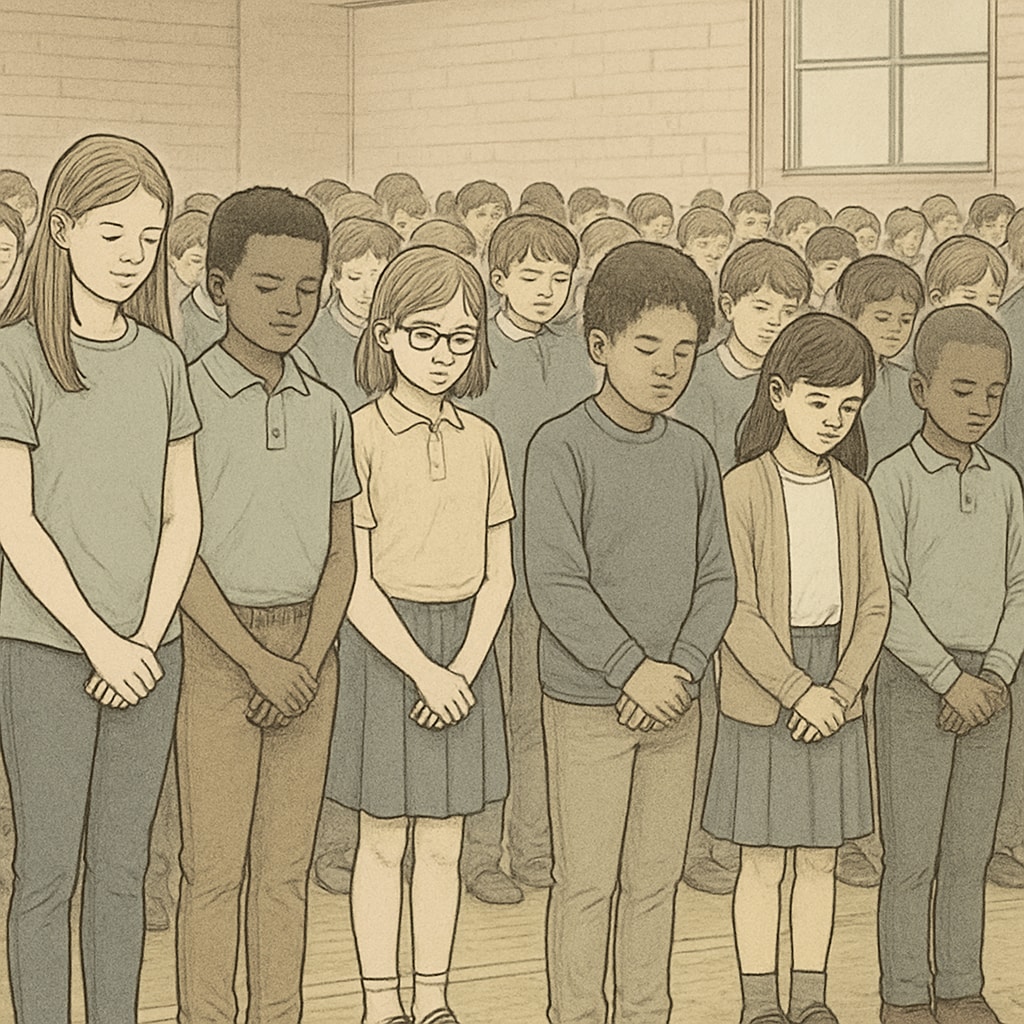The recent decision by a school to turn a Gaza mourning activity into a broader commemoration for all global war victims has ignited discussions on the implications of “universalizing” grief and accusations of political avoidance. Critics argue that such actions dilute the specific context of the conflict in Gaza, while supporters see it as a step toward fostering unity and empathy for victims of conflict worldwide. This debate raises important questions about the balance between cultural sensitivity, political neutrality, and the ethics of public mourning.
The Context of Gaza Mourning and Universalized Tributes
In response to recent events in Gaza, the school originally planned a moment of silence to honor the victims. However, concerns about appearing politically partial reportedly led administrators to expand the commemoration to include victims of all wars globally. This decision has sparked a polarized reaction. Some parents and students feel that the shift undermines the specific gravity of the Gaza situation, while others appreciate the attempt to prioritize inclusivity and avoid political controversy.

Public mourning ceremonies often serve as a platform for showing solidarity with affected communities. However, critics of the school’s approach argue that broadening the focus risks erasing the unique historical, cultural, and political contexts surrounding the Gaza conflict. As political neutrality in public institutions is frequently debated, this case highlights the challenges of addressing sensitive topics while remaining impartial.
Criticism of Political Avoidance in Public Mourning
The school’s decision has been interpreted by some as an attempt to sidestep political controversy. By generalizing the tribute, the institution may have inadvertently conveyed a message of disengagement from the specific realities of Gaza. This phenomenon, often referred to as “political avoidance,” can sometimes alienate the communities directly impacted by the conflict.
Critics point out that while intentions may have been to promote universal empathy, the approach can lead to a perception of insensitivity. For example, the Gaza conflict is deeply rooted in decades of political, social, and territorial disputes, which cannot be easily equated with other global conflicts without losing critical context. As a result, universalizing the mourning tribute may risk oversimplifying or overlooking the unique struggles faced by those in Gaza.

The Case for Inclusivity and Universal Empathy
On the other hand, proponents of the school’s decision argue that expanding the scope of the mourning activity fosters a broader sense of empathy. By including all victims of war, the event can highlight the universal suffering caused by conflict and encourage students to think critically about the global consequences of violence. As education institutions often strive to promote peace and understanding, this perspective aligns with creating a more inclusive environment.
Moreover, the decision to include global war victims may reflect an effort to avoid alienating students and families with diverse political views. In an increasingly polarized world, schools may feel compelled to adopt approaches that focus on universal values rather than divisive specifics. This aligns with the principle of cultural sensitivity, which encourages respect for the diverse perspectives present in a community.
Balancing Specificity and Universality in Commemoration
The challenge of balancing specificity and universality in public mourning is not unique to this case. Across the globe, institutions often grapple with how to address tragedies without alienating or offending particular groups. While universal tributes can promote inclusivity, they also risk minimizing the significance of specific events.
To address these concerns, schools and other public institutions might consider alternative approaches, such as holding separate tributes for specific conflicts alongside broader commemorations. This way, they can honor both the uniqueness of individual tragedies and the shared humanity of global suffering. Transparency in communication with the community about the intentions behind these decisions is also critical to maintaining trust and inclusivity.
Ultimately, the debate surrounding the school’s decision to expand the Gaza mourning event underscores the complexities of navigating cultural sensitivity, political neutrality, and ethical responsibility in public settings. While there are no easy answers, this discussion highlights the importance of thoughtful, inclusive, and context-aware decision-making.
Readability guidance: This article uses short paragraphs and accessible language to ensure clarity for a broad audience. Overarching themes are supported with examples and links to authoritative resources, while transitions between sections ensure a smooth reading experience.


